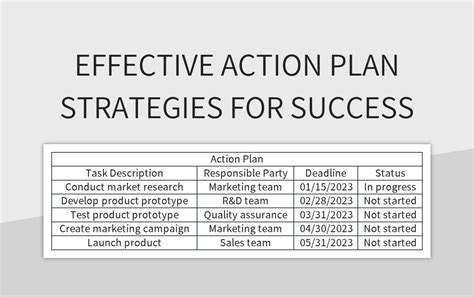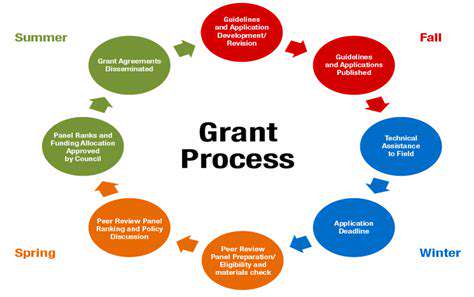How to Learn German Effectively
Building Vocabulary and Grammar Foundation
Understanding German Sentence Structure
German sentence structure, while seemingly different from English, follows logical patterns once understood. Learning the typical Subject-Verb-Object (SVO) order, and how it's frequently altered, is crucial. Understanding the placement of articles, adjectives, and prepositions is essential for accurately constructing sentences, and grasping the concept of word order variations is key to fluency.
Furthermore, recognizing the importance of cases (nominative, accusative, dative, genitive) and how they affect noun endings is vital. These grammatical nuances directly impact the meaning of a sentence. A solid grasp of sentence structure lays the groundwork for more complex grammatical concepts and helps you construct meaningful and grammatically correct sentences.
Mastering German Verb Conjugations
German verbs are conjugated to match the person and tense of the sentence. This means that the verb changes form depending on who is performing the action and when the action takes place. This seemingly complex system becomes manageable with consistent practice and memorization. Learning verb conjugations isn't just about rote memorization; it's about understanding the patterns and rules, and how they apply to different verb types. This will improve your ability to express yourself in a wide range of situations and tenses.
Expanding Your Vocabulary Through Active Learning
Building a robust German vocabulary is a marathon, not a sprint. Focus on learning words and phrases related to specific topics you're interested in. This approach makes memorization more engaging and meaningful. Instead of simply memorizing lists, try creating flashcards, using online vocabulary builders, or even incorporating new words into your daily conversations, even if it's with yourself. Active recall and application are key to retaining new vocabulary.
Don't be afraid to use online resources and language learning apps to find examples of words in context. This will significantly enhance your understanding and retention, and will help you connect the words to real-world situations.
Utilizing Effective Memorization Techniques
Employing diverse memorization techniques is crucial for effective vocabulary acquisition. Spaced repetition systems (SRS) are particularly helpful for retaining words over time. These systems strategically present words at increasing intervals, reinforcing your memory and preventing the dreaded forgetting curve. Combining visual aids, such as flashcards, with auditory methods, like listening to German podcasts, can also be highly beneficial.
Improving Pronunciation and Listening Skills
Focusing on accurate pronunciation is essential for effective communication. Listening to native speakers, whether through audio materials or live conversations, will greatly enhance your understanding of the nuances of German pronunciation. Recognizing the different sounds and accents will allow you to distinguish between words and understand the subtle differences in meaning. Practicing pronunciation regularly will also improve your confidence when speaking.
Utilizing German Language Learning Resources
Leveraging a variety of resources is critical to achieving fluency. Language learning apps, online dictionaries, and interactive exercises offer diverse and engaging ways to learn. Don't underestimate the power of native speakers or language exchange partners. These interactions provide invaluable opportunities to practice speaking, clarify doubts, and gain insights into cultural nuances. Seek out resources that cater to your learning style and preferences.
Integrating German into Daily Life
Actively incorporating German into your daily routine is vital for accelerating progress. Surround yourself with German by listening to music, watching movies or TV shows, and reading books. This immersion will gradually expose you to diverse sentence structures, vocabulary, and conversational styles. Even simple tasks like ordering food at a German restaurant can become valuable learning experiences. The more you use the language, the faster you'll improve.
Consistent Practice and Patience
Consistency is Key
Learning German, like any new language, requires consistent effort. It's not about cramming information for a test, but about building a solid foundation through daily practice. Consistency allows you to gradually absorb new vocabulary, grammar rules, and pronunciation patterns, making the learning process less daunting and more enjoyable. Regular, short study sessions are often more effective than infrequent, long ones. Even 15-20 minutes of dedicated study each day can significantly contribute to your progress over time.
Think of it like exercising a muscle; regular use strengthens it. Consistent practice in speaking, reading, writing, and listening will solidify your understanding and fluency. Don't get discouraged by setbacks. Every missed opportunity to practice can be seen as a chance to reinforce your commitment and plan for future study.
Patience is a Virtue
Learning a new language takes time and effort. Don't expect to become fluent overnight. Be patient with yourself and celebrate small victories along the way. Each new word, phrase, or grammatical concept you master is a step forward in your journey. Recognizing and acknowledging your progress, no matter how small, will keep you motivated and focused on your goals.
Mistakes are inevitable and are part of the learning process. Don't let them discourage you. Instead, view them as opportunities to learn and improve. Embrace the challenges and be patient with yourself as you navigate the complexities of the German language.
Active Learning Strategies
Rote memorization might seem like a viable approach in the short term, but it won't lead to meaningful language acquisition. Active learning strategies, such as using flashcards, creating your own sentences, and engaging in conversations with native speakers, will help you understand the language on a deeper level. These strategies also engage different parts of your brain, making the learning process more effective and lasting.
Immerse yourself in the language as much as possible. Listen to German music, watch German movies or TV shows with subtitles, and read German books or articles. The more you interact with the language, the more comfortable and confident you will become.
Immersion and Interaction
Surrounding yourself with the German language outside of formal study sessions is incredibly important. This could involve finding a language exchange partner or joining a German conversation group. Interacting with native speakers, even in a limited capacity, can be invaluable for improving your conversational skills and understanding of cultural nuances.
Utilizing language exchange platforms or apps, or finding online communities, can provide opportunities to practice speaking and listening. This interaction will not only improve your language skills but also expand your cultural understanding, making the learning process more enriching and rewarding.
Utilizing Resources Effectively
There are a plethora of resources available to support your German learning journey. From textbooks and online courses to language learning apps and language exchange partners, don't be afraid to explore different options and find what works best for you. Utilize online dictionaries and grammar resources to clarify any doubts or questions you might have. Effective use of these resources can accelerate your learning and make the process more enjoyable.
Choose resources that match your learning style and preferences. If you're a visual learner, consider using flashcards or other visual aids. If you prefer a more interactive experience, look for online courses or language exchange partners. Finding the right resources can significantly impact your learning experience.
Read more about How to Learn German Effectively
Hot Recommendations
- How to Stay Productive While Working Remotely
- Tips for Managing Conflict with Coworkers
- Entrance & Certification Exams (升学考试)
- How to Improve Your Storytelling Skills (Speaking)
- How to Find Profitable Side Hustles
- Tips for Preparing for the TOEFL iBT Home Edition
- Guide to Switching Careers from [Industry A] to [Industry B]
- How to Run an Effective Hybrid Meeting
- Tips for Marketing Your Side Hustle on Instagram




![How to Improve Your Memory and Retention [Techniques]](/static/images/32/2025-05/OptimizingYourLearningEnvironment3ASettingtheStageforSuccess.jpg)






